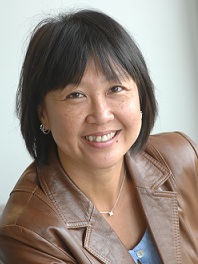WMG News
WMG supports global virtual hackathon tackling COVID-19 impact
 WMG is pleased to be supporting Dataswift’s Hack from Home event, a global virtual hackathon to find technology solutions to fight the spread of COVID-19 and mitigate against its economic and societal impact.
WMG is pleased to be supporting Dataswift’s Hack from Home event, a global virtual hackathon to find technology solutions to fight the spread of COVID-19 and mitigate against its economic and societal impact.
The event organised by HAT-LAB takes place this weekend (4th – 5th April). There are a consortium of partners including WMG, NHSX, Case Western Reserve University’s xLAB, the Cleveland Clinic’s Hwang Lab, University of Surrey, University of Exeter, the Ethical Tech Alliance, Samsung Medical Center, AITRICS, and the Yonsei Severance Medical Center.
This UK-launched initiative joins the global movement of hackathons taking place around the world.
Teams of technologists, creatives, activists and experts will be launching up to 25 new applications over the weekend, as they work to help solve some of the greatest challenges caused by the COVID-19 pandemic. The innovative projects will focus on three key themes.
These are:
● Citizen science - solutions to empower individuals to help healthcare and the government tackle the disease faster
● Community health - technology or applications that help the vulnerable or ensure communities have the resources to make it through the crisis
● Mass coordination - solutions that unlock the power of personal data to help mobilisation and coordination of resources
Mentoring, resources, and support from experienced technology and product leaders will guide each project as they compete to make the biggest impact on the virus and its effects on society. Viable solutions will be offered funding and professional developer support, and the entrepreneurs leading them will be encouraged to continue development and bring the solutions they have created to market to help communities, patients, and healthcare services.
 Professor Irene Ng WMG’s Professor of Marketing and Service Systems and CEO of Dataswift explained: “We’re giving people a chance to respond with action, by working together to improve the lives of everyone affected by COVID-19.”
Professor Irene Ng WMG’s Professor of Marketing and Service Systems and CEO of Dataswift explained: “We’re giving people a chance to respond with action, by working together to improve the lives of everyone affected by COVID-19.”
“Our goal is to band together to help communities, patients, and their families using what we know best - technology. We need to ensure that in these difficult times opportunistic app makers aren’t hoovering up our data, and to avoid a scenario where the world ends up worse than it was before. This collective action will prove that the ethical data economy can trump the surveillance economy.”
Hack from Home is actively looking for participants, mentors, and sponsors. Anyone interested in getting involved is invited to register online or get in touch here.
Professor Ng added: “Let’s roll up our proverbial sleeves with the research, technology, and business communities and demonstrate how much public value we can create when we’re working together.”
Youngjin Yoo, Professor of Design and Innovation at Case Western Reserve University and Faculty Director of xLab has highlighted that: "The fight against the pandemic is not just a medical problem - it is a behavioural, and a social problem. Our economy, our social lives, and our community are all affected by the pandemic. A multi-disciplinary, multi-industry approach to this struggle is required. And the market failure of the ethical use of personal data is one of the challenges.
“The Covid19 pandemic is demonstrating in real time why the society desperately needs a scalable ethical technology infrastructure. This hackathon will bring bright minds together to address this complex and rapidly evolving problem."
For more information visit: www.dataswift.io
Privacy and trust in children’s e-books is first focus for new £1.2m study of our future connected world
WMG at the University of Warwick have secured £1.2m grant funding from the Engineering and Physical Science Research Council (EPSRC) to explore how decentralisation, personal data, and our Internet-connected possessions come together on the Hub of all Things (HAT) platform. The first focus of the WMG team’s project will be issues of privacy and trust in children’s e-books.
The WMG team’s Dynamic, Real time, On-demand Personalisation for Scaling (DROPS) project is a collaboration between academics at the universities of Warwick, Surrey, and the West of England. It will examine the privacy, trust, and identity issues that arise from the development of personalized e-books for children's reading. The researchers’ focus on children's reading is motivated by evidence that shows that despite the value of personalised e-books for learning and reading enjoyment, there is a lack of research that engages with the range of privacy issues that these technologies introduce.
Working with the HAT Community Foundation, a non-profit promoting the use of HAT micro-servers for decentralized, person-controlled personal data, the DROPS project will investigate the technology, business, economic, and legal models of personalisation in a newly decentralised digital economy.
Taking back control with RUMPEL
WMG, University of Warwick is pleased to announce the arrival of RUMPEL, a ground-breaking hyperdata web browser that makes it simpler for people to access and use online data about themselves.
web browser that makes it simpler for people to access and use online data about themselves.
The development of RUMPEL has been led by our Professor of Marketing and Service Systems, Irene Ng, with funding from the EPSRC. The first of its kind, RUMPEL gives users the ability to browse their very own private and secure 'personal data wardrobe,' called a HAT (Hub-of-all-Things). The HAT collates data about them held on the internet such as on social media, calendars and smartphones, with the possibility of also including shopping, financial and other personal data, and allows people to now control, combine and share it in whatever way they wish.
£1.2m gives HAT a HALL to help research how individuals can better use their own personal data
 EPSRC awards £1.2m funding to WMG, University of Warwick together with partner universities Cambridge, Surrey and UWE to create the HAT Living Labs.
EPSRC awards £1.2m funding to WMG, University of Warwick together with partner universities Cambridge, Surrey and UWE to create the HAT Living Labs.
The Engineering and Physical Science Research Council has awarded a grant of £1.2m to the University of Warwick, along with the universities of Cambridge, Surrey and West England to establish the “HAT Living Labs”.
The HAT is a platform technology that was created through an earlier Digital Economy Research grant to give individuals the technological power to claim, own, control and share their data the way they want to, to make better and more informed decisions. The management of the HAT ecosystem has recently been handed over to the HAT foundation for a global roll out (see press release here).
WMG research empowers new foundation’s aim to revolutionise personal data by giving everyone a HAT
 A multi-disciplinary digital economy research project by WMG at the University of Warwick has developed a multi-sided market for personal data known as the HAT.
A multi-disciplinary digital economy research project by WMG at the University of Warwick has developed a multi-sided market for personal data known as the HAT.
This will now be taken forward by a new HAT Foundation which aims to roll it out globally to revolutionise how we all handle the vast amounts of personal information we are simply pouring online using research developed at WMG at the University of Warwick.
WMG Professor Irene NG said:
“We hand over vast reams of personal data to online shopping and search engines, and the growing internet of things is about to create vast new databases of personal data which our own household possessions will hold and share with external suppliers and agencies.”
“Now is the time to wake people up to just how much personal data they pour online and empower them to use that data to benefit them as much as it’s benefiting the businesses that are harvesting it.”
“With the internet of things growing as a concept people need to get as much utility out of their own data as the product providers and utilities that will increasingly be taking that data.”
Infant Mortality Rates Could Be Lowered Through Improved Medicine Packaging Designs
The usage of key medicines in developing countries could be significantly increased through improved packaging appearance, a new study by the Clinton Health Access Initiative, Inc. (CHAI) and the University of Warwick finds.
Infant dehydration due to diarrhoea results in 600,000 deaths annually in the developing world due to inappropriate or no treatment. Oral Rehydration Salts (ORS) combats this dehydration.
The WMG and CHAI researchers worked with over 600 caregivers in India, Nigeria and Uganda to assess their responses to existing and potential new ORS packaging designs. The study found that simple changes to packaging led to significant increases in the willingness of caregivers to provide ORS to their children. Caregivers indicated that current packaging designs had inappropriately large sachets, lacked clear usage detail and were visually unappealing.
2015 will see the next phase of the internet revolution
 At an event, earlier this week, Professor Irene Ng announced registration for the HAT personal data platform (HATPDP), which allows individuals to collect, use, share and trade their own data amongst themselves and with firms, will be open for people in the UK, giving them the opportunity to become the world's first 1 million HAT beta users.
At an event, earlier this week, Professor Irene Ng announced registration for the HAT personal data platform (HATPDP), which allows individuals to collect, use, share and trade their own data amongst themselves and with firms, will be open for people in the UK, giving them the opportunity to become the world's first 1 million HAT beta users.
In 2015, the HAT will first be launched in the Midlands and then later in the year in Singapore. The HATPDP was demonstrated for the first time at the 2nd Mad Hatters' Tea Party in London's Digital Catapult, with the release of the technical specification of the HAT APIs for developers and firms to build applications and devices around the use of personal data. The event also saw the release of the economic model of the HAT ecosystem, and new potential business models for the use of personal data of the future.
Announcing the HAT project's collaboration with Enable iD, to become the first HAT Platform Provider (HPP) in Europe, Professor Irene Ng, Director of the International Institute for Product and Service Innovation at WMG, University of Warwick and the Lead Investigator of the HAT project said:
We are very pleased to be working with Enable iD to scale up the HAT. We believe that the next stage of the Internet is that of data-driven human decisions enabled by the Internet of Things and data intensive services and we are really pleased that it will begin in the Midlands, the birthplace of the industrial revolution. We think the HAT will create an economic system that is more democratic in terms of data exchanges as well as incentivising more innovation, business opportunities and will create a whole new economy with new jobs and skills”.
Mad Hatters' Tea Party to hear about tech behind an internet HAT (a Hub-of-All-Things)
 Developers will be invited to be amongst the first to view technology to help support the next phase of the Internet's evolution when the Hub-of-All-Things (HAT) platform is revealed at a “Mad Hatters' Tea Party” later this month.
Developers will be invited to be amongst the first to view technology to help support the next phase of the Internet's evolution when the Hub-of-All-Things (HAT) platform is revealed at a “Mad Hatters' Tea Party” later this month.
Professor Irene Ng, from WMG at the University of Warwick, will announce this forthcoming opportunity while speaking at the Innovate UK event in London on Wednesday 5th November.
The 2nd Mad Hatters' Tea Party on November 24, 2014 will be demonstrating the HAT, a technology and market platform for individuals to collect, use, share and trade their own data amongst themselves and with firms.
The event, hosted by the Connected Digital Economy Catapult at its new Digital Catapult Centre in London, will mark the first round release of the inbound and outbound APIs of the HAT with the aim of helping developers and firms prepare themselves to participate in the next wave of the Internet – an internet of data-driven decisions, empowering individuals to make smarter decisions in their day to day lives.
The HAT enables individuals to reclaim and control their own data for their personal use. Crucially, this digital data repository is owned by the individual and preserves their privacy. This is particularly important in today's increasingly connected world, where much of our lives is being captured digitally as data, giving rise to concerns about security, privacy, confidentiality and trust.
HARRIET’s high tech HAT to help make Birmingham a Smart City
 Birmingham households will be first to pilot new technology being developed by WMG at the University of Warwick that aims to create the next generation of 'Smart' homes with “smart” things working together in a “smart city”.
Birmingham households will be first to pilot new technology being developed by WMG at the University of Warwick that aims to create the next generation of 'Smart' homes with “smart” things working together in a “smart city”.
WMG has secured funding from the Research Councils UK (RCUK) Digital Economy Theme to partner with Birmingham City Council to create the HARRIET (HAT Resource Integration and Enabling Tool) project. This will equip homes with technology and software to create a HAT (Hub-of-all-Things), which aims to assist individuals to better understand their household behaviour and make “smarter” money saving and time saving decisions based on the data they then share on how they act as consumers within their homes see http://hubofallthings.com
The 18-month £485,000 project will work with volunteer households and individuals in Birmingham to collect, analyse and transform the “big data” about product and service consumption produced by modern households on a daily basis that will be stored in individuals’ personal HAT database.
£1.2m HAT project to create a personal data repository of digital life and a home platform for future services and products
 Research led by WMG at the University of Warwick is creating a physical personal digital repository that will record and hold data on both a person’s digital footprint and the physical patterns of their daily home life.
Research led by WMG at the University of Warwick is creating a physical personal digital repository that will record and hold data on both a person’s digital footprint and the physical patterns of their daily home life.
The repository is owned by the individual (much like money in our banks) and could be used to trade and shape future services and products to individuals.
The Research Councils UK Digital Economy Programme has given £1.2 million to a team of business researchers, economists, computing experts and arts academics from six UK universities (Warwick, Exeter, Nottingham, Cambridge, West of England and Edinburgh) to undertake the two-year study project, which will begin in June 2013.
